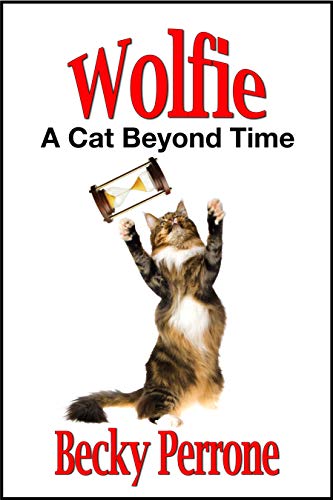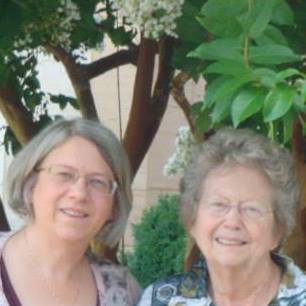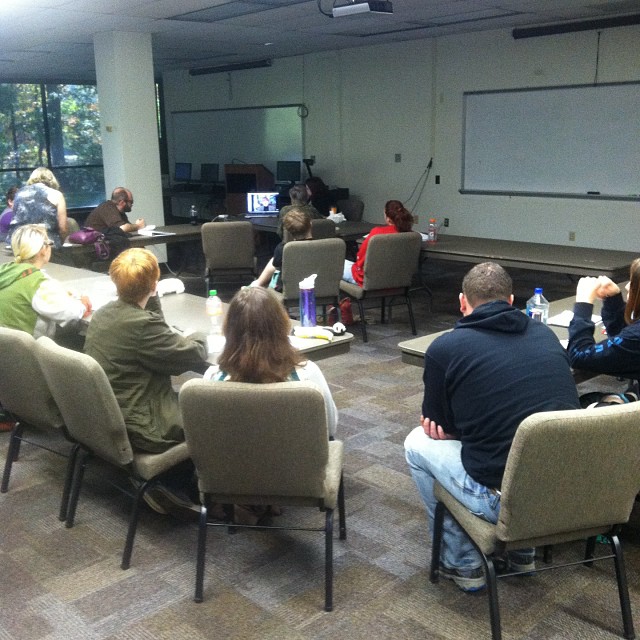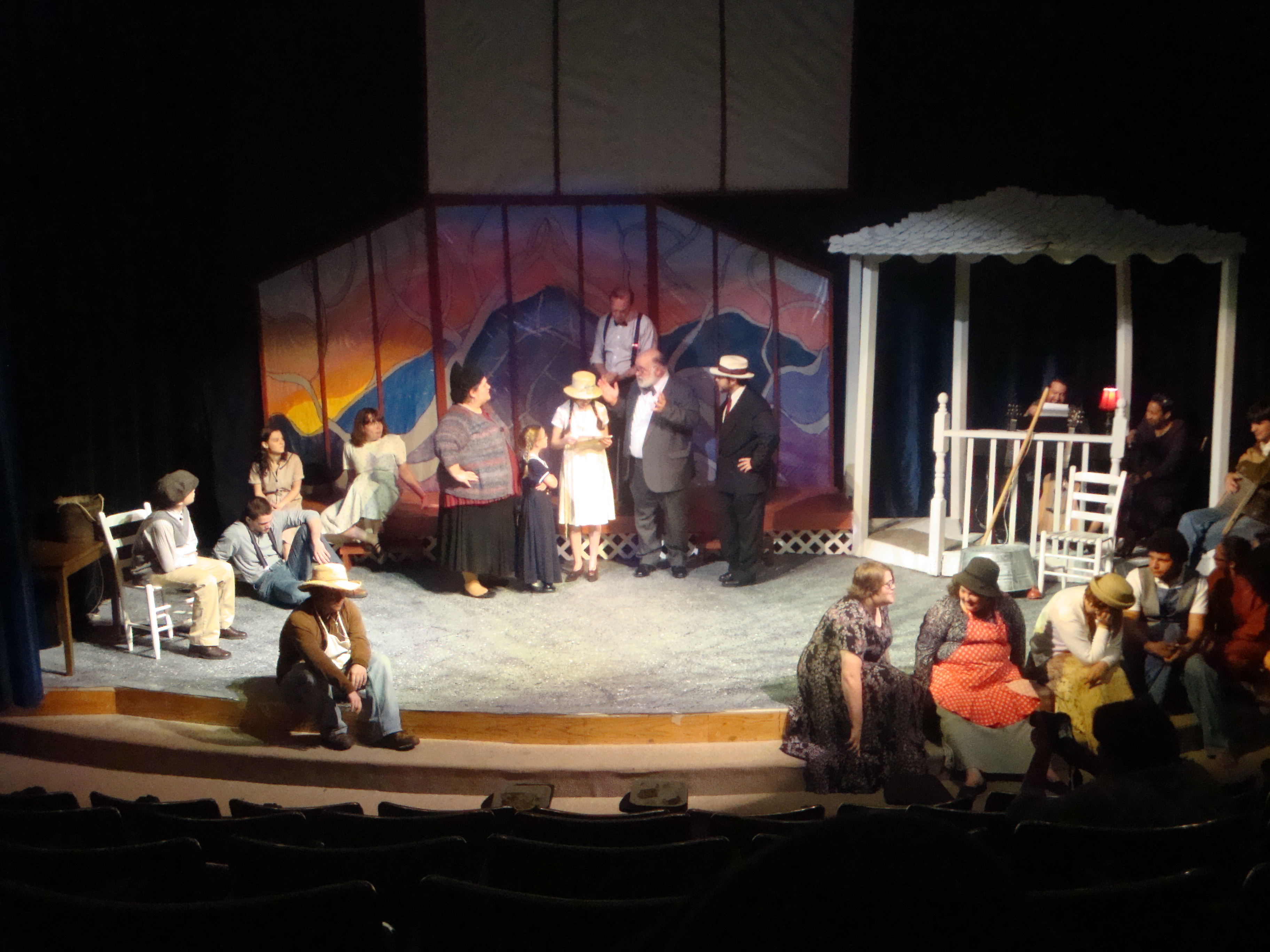 There seems to be an increasing hostility in the world today towards the study of the liberal arts. This is not a new subject to readers of my blog. As a community college instructor teaching English, I have grave concerns about how this hostility is affecting many of my students at the college where I teach.
There seems to be an increasing hostility in the world today towards the study of the liberal arts. This is not a new subject to readers of my blog. As a community college instructor teaching English, I have grave concerns about how this hostility is affecting many of my students at the college where I teach.
If students don’t value the liberal arts, especially the humanities, they often become resentful of having to complete assignments that appear, to their uninformed minds, to have no practical value. This resentment can turn to inattentiveness and a lack of participation, which sometimes turns to more serious inappropriate behavior, and even to open hostility and violence, according to a 2008 study by educational counselors Dr. Robert Dobmeier and Joseph Moran (“Dealing with the Disruptive Behavior of Adult Learners”).
The feeling that students’ time studying in the humanities classroom is somehow wasted is often times reinforced by negative attitudes within the home, among peers and in the wider community. For example, former Governor Pat McCrory of North Carolina said in a 2013 radio interview referring to certain humanities courses, including gender studies and an African foreign language
“So I’m going to adjust my education curriculum to what business and commerce needs to get our kids jobs as opposed to moving back in with their parents after they graduate with debt,” McCrory said, adding, “What are we teaching these courses for if they’re not going to help get a job?”
If the governor of a state with a rich tradition of superb institutions of higher education feels free to make such uninformed statements, it is logical to assume that some students are hearing similar ones at home and among their peers.
I can attest that this lack of respect has led to disrespect for not only the disciplines I teach, but also for myself. Furthermore, I am not alone. Students are becoming more and more critical of instructors’ assignments, teaching styles and assessments. I don’t mean legitimate questions respectfully asked, which leads to explanations that help students understand the material better, but criticism that is increasingly uncivil, including sleeping, texting or talking in class, posting inappropriate comments in online discussion forums, as well as e-mailing rude and even obscene comments to instructors.
Worse, community college instructors are increasingly confronted with angry and hostile students in the classroom and in our offices. These students are often upset that an instructor has carried out a policy that is stated clearly in his or her syllabus or there is some disagreement about a grade. Sometimes these encounters are upsetting and even frightening to the instructor, his or her colleagues, other students, staff and administrators.
I have been teaching a long time, and I know that incidents like these have been happening since the first classrooms were created, but I have never, in my whole almost 30-year career, had so many adult students with such unhealthy attitudes toward learning for learning’s sake, that inexplicable passion for learning, which leads to all of the things so many people say they desire out of higher education–citizens who can think critically, communicate well, solve problems and adapt to new situations quickly.
Something needs to be done. But what? There are no easy answers, but I am going to begin with educating myself with specific information that supports my belief that the study of the liberal arts should be the bedrock of all our institutions of higher learning.
**********
I found this incredible essay posted on the Academy of Arts and Sciences website, along with a great article entitled, “The Vitality of the Humanities in U.S. Community Colleges,” that reiterates my thoughts on the importance of all students studying the arts and humanities in our community colleges:
January 19, 2015
Community College Students and the Humanities: New Opportunities for Learning and Growth
posted by Martha J. Kanter
Martha J. Kanter, Ed.D., is a Distinguished Visiting Professor of Higher Education at New York University and former U.S. Under Secretary of Education from 2009 through 2013.
More than 40 percent of our nation’s adults are unable to read, write, or compute at the competency level expected of America’s high school graduates, so it’s hardly a surprise, even if it is gravely disappointing and frustrating, to inform policy makers, and the public about the worth of the humanities.1 But what better way to elevate the discussion than with facts and policy strategies?
That is why the light that the American Academy of Arts and Sciences is shining on community colleges and the humanities is critical in this endeavor. Even today, too many Americans aren’t aware that the community colleges are the gateway to higher education for more than 40 percent of our nation’s undergraduates. A generation ago the United States was first in the world in the number of college graduates with two-year and four-year degrees. According to the Organisation for Economic Co-operation and Development (OECD), we are now eleventh in the world, tied with Israel.2 The good news is that we are moving in the right direction: we were ranked sixteenth 16th in the world in 2009. It’s a national imperative that we provide Americans the best quality education so we must look to the community colleges and state universities where the middle-class and low-income majority is seeking higher education. (my accent)
Educational improvements and financial support are sorely needed. Sadly, public colleges and universities were hit hard by the recession and lost, on average, about 20 percent of their state support. We need our private universities to join with their colleagues in the community colleges and state universities in a shared vision to reimagine and redesign general education in the years ahead. In doing so, we will ensure that all of our students have access to the fundamental ideas, knowledge, skills, and capacity to learn that will advance greater numbers of students with undergraduate and graduate degrees for America’s prosperity in the 21st century.
Looking at the facts, more than a third of associate’s degrees are awarded in subjects that require a significant humanities course load.3 Exposure to the humanities in the first two years of college as a significant component of general education provides the intellectual framework for students to compare and contrast the viewpoints of those different from themselves and to delve into the learning spheres of analytical reasoning, problem solving, and decision making to tackle the very real problems facing their communities and the greater society.
In a recent survey, the American Association of Colleges and Universities found that 93 percent of CEOs want to hire individuals who demonstrate the “capacity to think critically, communicate clearly and solve complex problems,” capabilities “more important than their undergraduate major. More than nine in ten of those surveyed say it is important that those they hire demonstrate ethical judgment and integrity; intercultural skills; and the capacity for continued new learning.”4 (accent is mine)
Unfortunately, the collaboration so urgently needed between the arts, humanities, sciences, and business has fragmented into ever more disparate pieces over the last decade when their interaction and integration should be encouraged to spur innovation, entrepreneurship and creativity to drive our nation forward. In the decades ahead, our nation will need more Americans with college degrees who are well versed in the histories and opportunities to address the major societal challenges of our democracy and the world, not the least of which include the education levels of children, income inequality, the social, economic and civic needs of diverse communities, globalization, innovation, and American competitiveness. Interdisciplinary thought leadership and collaboration will be more important than ever in crossing boundaries to address the local, regional, national, and global problems ahead of us.
When Tom Ehrlich spoke about the pathways to ethical and engaged citizenship at Miami Dade College in 2009, he said, “college learning must be about much more that [sic] knowledge—knowledge that may be obsolete in just a few years. Most important, it must be about learning how to learn and to keep on learning. At its core, that is what a liberal education does, it liberates our minds to learn.”5 (accent is mine)
We should look to the evidence, embrace the liberal arts as a necessary foundation for postsecondary education in all fields of study, and figure out how to give our students the best possible opportunities to discover themselves, their place in the world, and how they can contribute to improving their own lives and the lives of their communities. In doing so, we will be part of the American dream we wish to realize for ourselves and future generations. (accent is mine)
ENDNOTES
1 U.S. Department of Education, Institute of Education Sciences, National Center for Education Statistics, 1992 National Adult Literacy Survey (Washington, DC: U.S. Department of Education, 2000), http://nces.ed.gov/pubsearch/pubsinfo.asp?pubid=199909; and U.S. Department of Education, Institute of Education Sciences, National Center for Education Statistics, “Percentage of adults in each prose, document, and quantitative literacy level: 1992 and 2003,” in 2003 National Assessment of Adult Literacy (U.S. Department of Education, 2003), http://nces.ed.gov/naal/kf_demographics.asp#2.
2 OECD, Education at a Glance 2014: OECD Indicators (Paris: OECD Publishing, 2014), http://dx.doi.org/10.1787/eag-2014-en.
3 American Academy of Arts and Sciences, “Associate’s Degree Completions in the Humanities as a Percentage of All Associate’s Degree Completions, 1987–2013,” in Humanities Indicators, 2014.
4 Hart Research Associates, It Takes More than a Major: Employer Priorities for College Learning and Student Success (Washington, DC: Hart Research Associates, 2013), http://www.aacu.org/sites/default/files/files/LEAP/2013_EmployerSurvey.pdf.
5 Tom Ehrlich, “Ethical and Engaged Citizens: Whose Responsibility?” (talk delivered at Miami Dade College, Miami, FL, May 21, 2009).









 There seems to be an increasing hostility in the world today towards the study of the liberal arts. This is not a new subject to readers of my blog. As a community college instructor teaching English, I have grave concerns about how this hostility is affecting many of my students at the college where I teach.
There seems to be an increasing hostility in the world today towards the study of the liberal arts. This is not a new subject to readers of my blog. As a community college instructor teaching English, I have grave concerns about how this hostility is affecting many of my students at the college where I teach.





